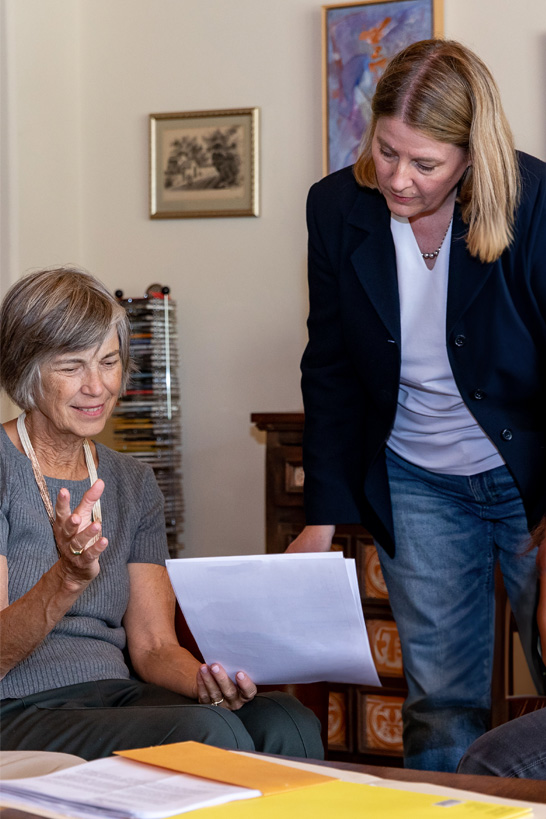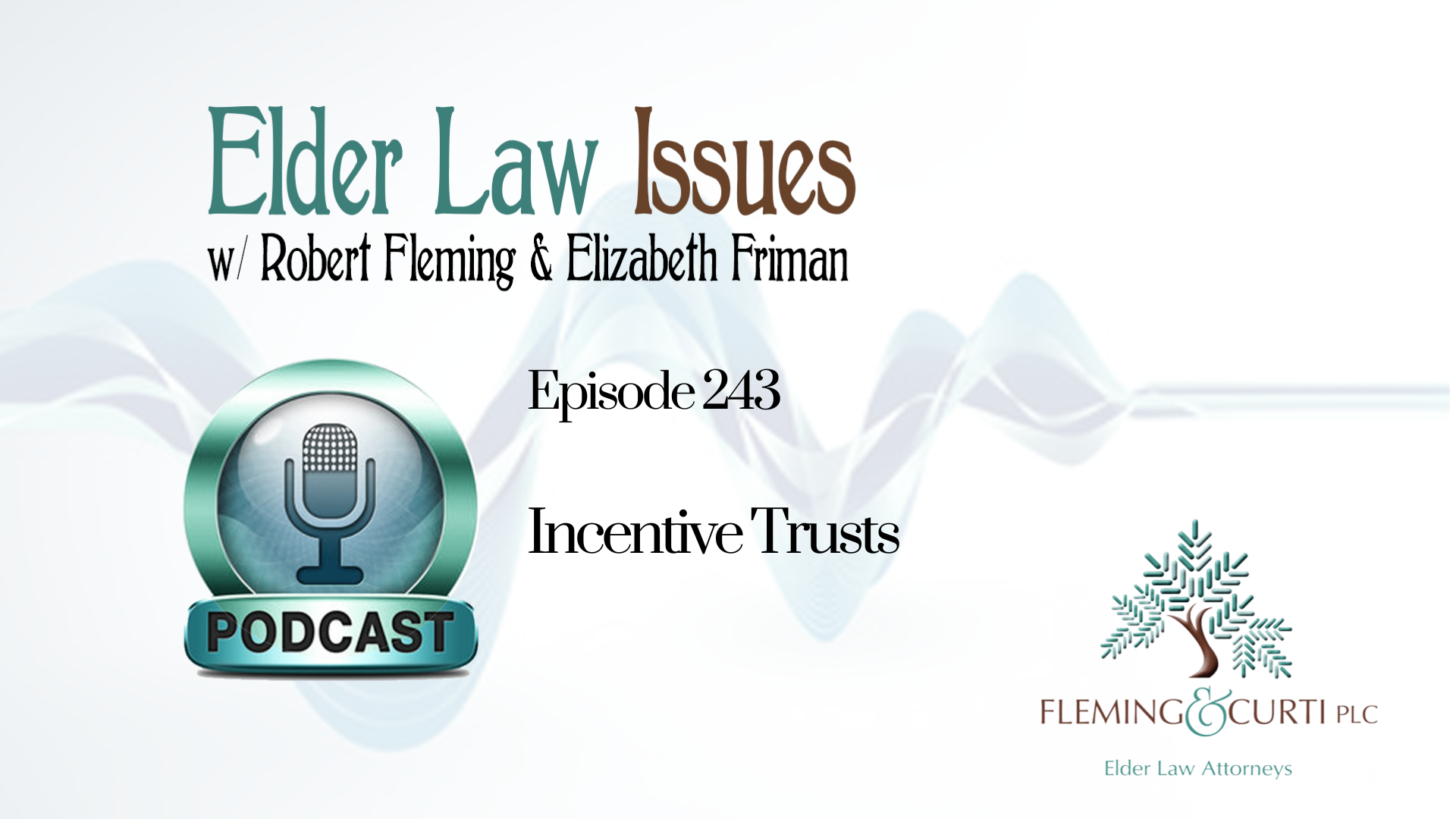Long Term Care
There’s no precise definition of “long-term care.” When we use this phrase, we refer to medical care or personal assistance provided by a caretaker or a facility for a period of weeks, months or longer.
A common standard for determining if someone needs long-term care are standard activities of daily
living, or “ADLs.” The number of ADLs a person needs assistance with is associated with the level of care
that he or she may require. Common “essential ADLs” include dressing, eating, ambulating, toileting,
and hygiene. Higher-level ADLs can include shopping, accounting, food preparation, housework, and
transportation. Although patients in long-term care often show cognitive decline, someone who may
need long-term should not be presumed to be incapacitated. Inability to perform ADLs can be solely due
to physical or health limitations; another person who is physically fine may have cognitive difficulties
that impair their ability to perform ADLs.
If long-term care is needed, it can be provided in nursing homes, adult care homes, assisted living
facilities, congregate living arrangements, adult day care centers, and in homes and apartments.
Have questions about Long Term Care?
Give us a call, we are happy to discuss your options.

Cost
The cost of medical care is a natural consideration that many people contemplate. The cost of long-term care varies by geographic region, setting, and type of care provided, and people are right to worry. Long- term care can be very expensive. Although many people provide in-home care for loved ones to help minimize health care expenses, this is not an option for everyone. Payment for formal long-term care comes from a combination of federal and state programs, social and charitable organizations, insurance, and personal funds.
Medicare (health insurance for people over age 65 or disabled and who are eligible to receive Social Security retirement or disability benefits) covers only a small portion of long-term care. Medicaid, a state-federal health-care program for the poor, pays for more than half of all nursing home costs nationwide.
Medicaid services are partially funded by the federal government and administered by each state. Federal regulations require minimum standards, but much of the implementation is left to each state. As a result, Medicaid benefits vary from state to state. This article addresses Arizona law and practice and the information that follows may not apply to other states.
In Arizona, Medicaid’s general health insurance program is called AHCCCS (Arizona Health Care Cost Containment System), and the long-term care component is called ALTCS (Arizona Long-Term Care System).
ALTCS helps pay for nursing home-level care for people who are eligible. It’s a subsidized benefit, and what assistance is provided depends on the resources attributed to each recipient. In every case, ALTCS imposes a “share of cost.” A patient’s ability to contribute to care is determined by a formula, and that amount must be paid to the facility providing long-term care each month.
Eligibility
There are specific requirements to be eligible for ALTCS benefits. The applicant must be a U.S. citizen or qualified alien and be a resident of Arizona. Residency is easy to meet because it requires only that the applicant be physically present in Arizona and not have any intent to leave.
The applicant also must need nursing-home level care, which is determined by a Pre-Admission Screening, or “PAS.” The ADLs are evaluated on a point system, and the applicant either qualifies or does not based on that assessment. There is, however, no limit to the times a person can be evaluated for medical need. If the applicant does not “pass” the PAS, he or she can try again.
In addition, there are two components to financial eligibility: resources (aka assets) and income. Applicants may have only a certain amount of resources and income to qualify; however, certain strategies sometimes can be employed to achieve eligibility. It is important to consult with an attorney or other expert with ALTCS eligibility experience before the money is gone!


Certain assets are not counted, are “exempt,” from the resources calculation.
One “exempt” resource is a primary residence. An ALTCS recipient is entitled to retain his or her home, so long as he or she intends to return home. The intent to return home is established by simply checking the appropriate space on the ALTCS application; applicants can intend to return home even if, practically speaking, it would not be possible. If the ALTCS recipient has a spouse or disabled child living in the home, it is not even necessary to check the appropriate box on the form; it remains exempt. There may still be significant challenges because the ALTCS beneficiary may not be permitted to retain enough income to pay for upkeep, repairs or even taxes on the home. Further, the state may have a claim for reimbursement for benefits paid after the ALTCS recipient dies. (This is known as “estate recovery” and is a requirement of the program.) Still, it can be of considerable comfort to an ALTCS applicant (and his or her spouse and children) to know that ALTCS cannot compel sale of the recipient’s home to qualify for benefits.
In addition to the home, an ALTCS recipient who is unmarried, is permitted to retain an automobile, household furniture and furnishings, prepaid funeral/burial benefits and a few other items. Other than those categories, an unmarried applicant’s total assets must be reduced to $2,000.00.
The rules are much more complicated for a married couple when only one spouse needs benefits. (The rules become simple again–and very unforgiving–if both spouses need care.) All assets available to both spouses are added up, and the total divided in half. For ALTCS, community property and other ownership rules are not considered. Total assets are then reduced to the one-half figure (plus the $2,000 exemption available to an unmarried ALTCS applicant) before either spouse can qualify. To further complicate the calculation, the one-half figure has a maximum and minimum, and the precise figures change each year. These concepts, incidentally, are among the most variable from state to state.
As for income, Arizona, applies an income limit, but this limit is usually easy to overcome with something called an “Income Cap Trust,” also known as a “Miller Trust.” The rules governing Miller trusts are complex, but the result is simple: the applicant can qualify for ALTCS after the trust is properly established. Miller trusts are almost always a complete solution to the income cap problem, and only the uninformed need worry about being denied ALTCS eligibility for excess income.
If the applicant is married, the income calculation is more complicated. The total gross income of the applicant is looked at first. If the applicant’s income is below the income threshold, then the applicant qualifies regardless of the income the spouse receives. If the applicant’s income exceeds the limit, ALTCS will look at the total income of both spouses. If the couple’s combined income is less than twice the income cap figure, the applicant will qualify. The ALTCS recipient’s spouse may be entitled to keep some or all of the applicant’s income to pay for his or her living expenses.
There’s another potential obstacle to eligibility. When an ALTCS application is filed, eligibility workers will ask about any gifts made by the applicant, the applicant’s spouse, or anyone acting on behalf of either of them within the preceding 60 months. This five years before application is known as the “lookback period.” Gifts made before that period will not affect eligibility, but gifts made during the lookback period will result in a period of ineligibility, or penalty, before benefits commence.


Many ALTCS applicants must consider how to address excess resources before they can become eligible for ALTCS. This is something to seek legal advice about. The state may have a claim for reimbursement, or estate recovery, after the ALTCS recipient dies. ALTCS can sometimes impose liens against homes and assert claims if there is a probate proceeding. If the ALTCS recipient is survived by a spouse, a dependent minor child, or a disabled child, ALTCS is not permitted to enforce its lien or pursue a claim against the recipient’s estate.
Please note that we don’t practice in any state other than Arizona, and the rules we describe here may not be the same in other states. If you need advice in another state, we recommend attorneys who are Certified Elder Law Attorneys through the National Elder Law Foundation, or members of the Special Needs Alliance or the National Academy of Elder Law Attorneys.
I need help with:
How we're different

- Chris T
Podcasts

Podcast: Play in new window | Download
Subscribe to our Newsletter
Subscribe to our newsletter to get our takes on some of the situations families, seniors, and individuals with disabilities find themselves in. These posts help guide you in the decision-making process and point out helpful tips and nuances to take advantage of. Enter your email below to have our entries sent directly to your inbox!


